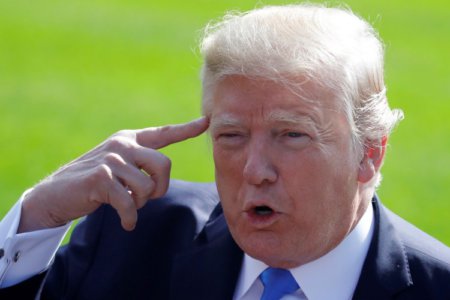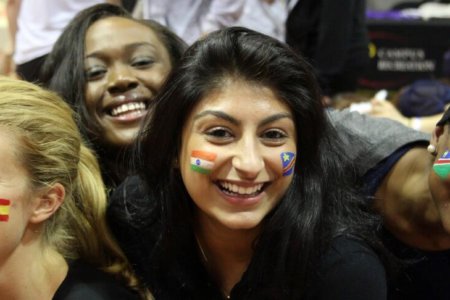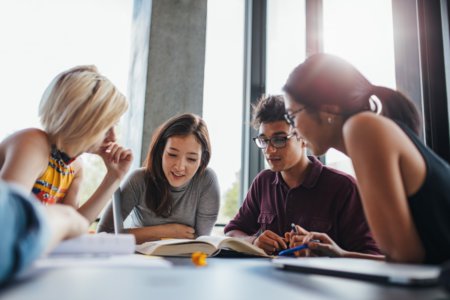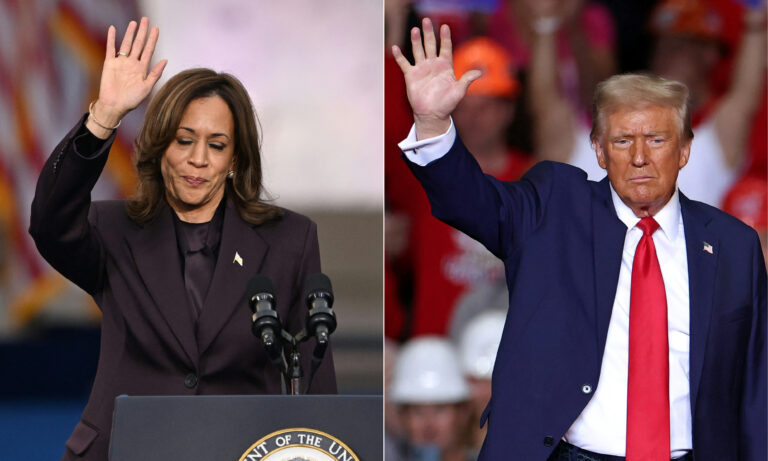
It’s official, and it could affect US international students — Donald Trump will serve the next four years as the 47th president of the US.
On January 20, 2025, Trump will return to the White House — four years after he left — for his inauguration.
There was a despondent air on the Democratic side of social media after Trump’s presidential victory: a mass reaction of people fearful of what is to come when human rights are at stake: women and their right to abortion, immigrant families and their right to remain, trans people and their right to be, and more.
“It was a terrible night for women, for children, for the hundreds of thousands of hard-working immigrants who make this country great, for healthcare, for our climate, for science, for journalism, for justice, for free speech,” said late-night host Jimmy Kimmel.
“It was a terrible night for everyone who voted against him, and guess what? It was a bad night for everyone who voted for him too,” he continues. “You just don’t realise it yet.”
But it’s a vastly different take for those who did vote for Trump.
Zohran Kwame Mamdani, a Ugandan-born New York State Assemblymember for District 36, took to the streets of Hillside Avenue in Queens and Fordham Road in the Bronx to speak with those who voted — and those who didn’t.
These two locations were picked not for convenience’s sake. Hillside Avenue and Fordham Road were the two areas that saw the biggest shift towards Trump during the election. Even more residents didn’t vote at all.
“I don’t believe in the system anymore,” one non-voter says.
But for those who do, they point out their hopes for an America led by Trump. In particular, most were eyeing the market prices of energy, food, and rent.
“Most of these people are working families, they’re working one to two, three jobs, and rent is expensive,” one interviewee shares. “Food prices are going up; utility bills are up.”
“What Trump did in the first four years [of his presidency], Fordham Road saw something where Kamala couldn’t do that,” says another.
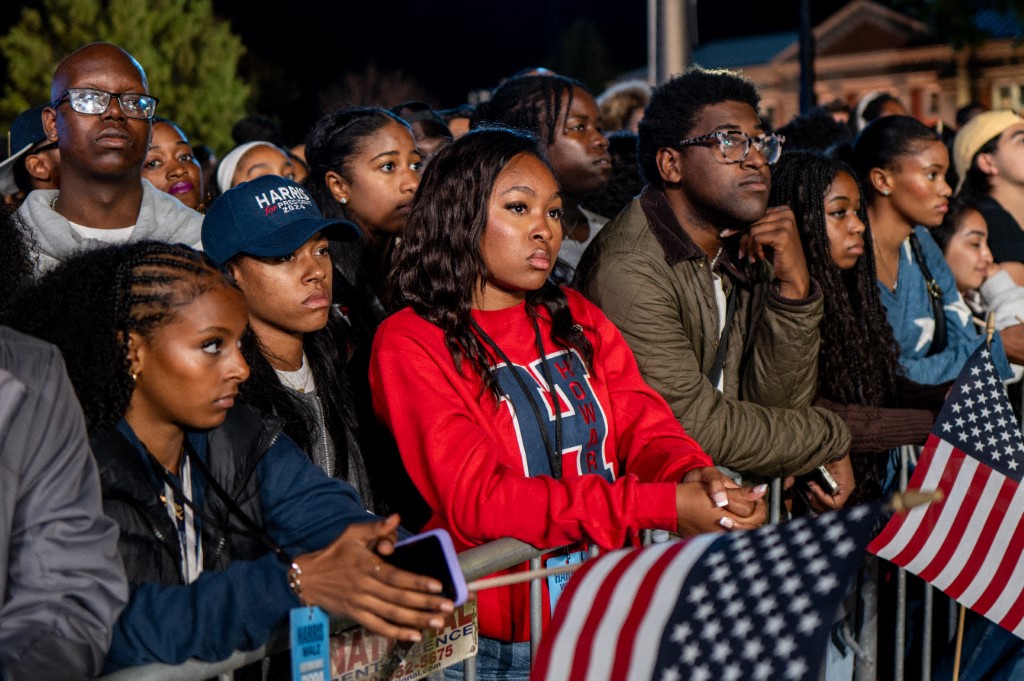
Howard University students listen to polling results during an election night event for Democratic presidential nominee, US Vice President Kamala Harris, on November 5, 2024, in Washington, DC. Source: AFP
For US international students, whether you’re already in the midst of your studies or you’re about to start applying for schools, there may be changes underway.
At Duke University, many international students on campus expressed concerns about their ability to apply to extend their visas post-Inauguration Day.
“A lot of people are talking about Trump probably changing the [OPT] to one year,” Zhanyue Chen, a Chinese master’s student at the Global Health Institute. “We are also really worried about finding a job in the US because the registration will be harder. [It] will be more tough.”
Meanwhile, Luisa López from Guatemala, a first-year University of Pennsylvania student, shared similar concerts with The Daily Pennsylvania.
“I feel like my opportunities here [for] research are even less than for [domestic] students,” she said. “If they change the policies related to that … I don’t know what’s gonna happen with my career.”
All this is in spite of Trump’s promises during his presidential campaign, which are a shiny green card once you graduate from college.
“You graduate from a college, I think you should get automatically, as part of your diploma, a green card to be able to stay in this country,” Trump said in June in the tech podcast, All-In.
“It’s so sad when we lose people from Harvard, MIT, from the greatest schools, and lesser schools that are phenomenal schools also.”
All-In is a podcast hosted by Silicon Valley investors, a group from which Trump has been seeking support, and Silicon Valley is a place that relies heavily on the talent of trained foreign tech workers and engineers. In 2018, the Immigration and Naturalisation Service believed that as much as 25% of the Silicon Valley workforce (around 200,000 people) were undocumented.
For that reason, much of the industry leaned towards the Democratic party in the past.
While the effort to appeal to investors may come at the benefit of US international students, what comes before that is extreme vetting.
In the words of his spokesperson, “President Trump has outlined the most aggressive vetting process in US history, to exclude all communists, radical Islamists, Hamas supporters, America haters, and public charges.”
Many people don’t quite know if they should believe him.
The director of international student and scholar services at Columbia College Chicago, Clare Lake, told the Columbia Chronicle, “What kind of president would try to overturn DACA (Deferred Action for Childhood Arrivals), and then say ‘I’m going to give all international students permanent residency?'”
Lake labelled Trump’s words as a mere “campaign promise.”
And coming from someone who would’ve ousted legal immigrants through his proclamation in 2020, if not for the Supreme Court ruling that the ability to do so was not within his right, US international students may be right to feel a little anxious.
“It’s an obvious lie. He made a similar statement in 2016 and never went through with it,” one Reddit user wrote. Meanwhile, an X user said, “So apparently Trump isn’t going to give green cards to college grads unless they meet several arbitrarily defined criteria related to ideology and wages.”
That raises the question — what is going to change for US international students since Trump can’t get re-elected in 2028?
Some foresight for students, based on the past

Trump is back in office, and US international students are anxious about the new limitations to come. Source: AFP
Slowing down student visa attainment
While it’s unlikely for Trump to bar international students from getting an F-1 or J-1 visa (for full-time and exchange students, respectively), he did propose a rule back in 2020 time-limiting student visas to two years — but it was later cancelled by Biden.
His first presidential stint also saw both student visa holders having a difficult time entering the US.
Barring entry from selected countries
Early in his first term, Trump signed an executive order enacting a travel ban on seven majority-Muslim countries, also known as the “Muslim Ban.” As a result of that, Yale Daily News reported a significant absence in the university’s Iranian population.
“I recalled from his first election, a few colleagues were held up in their home countries for months due to politics related to the new president,” a Reddit user says, suggesting that US international students hold off from travelling home for family visits.
High denial rates for employment visas
Much of the concern, however, lies with the attainment of employment visas.
Despite his claims to preserve the talent amongst US international students, denial rates for H-1B visas — a temporary visa that permits nonimmigrant aliens for employment — increased significantly during his first administration, going from 6% in 2016 to 24% in 2018.
It may harder to stay in the country post-grad
On that note, it may be harder for international students to be approved for Optional Practical Training (OPT), which is temporary employment through the F-1 visa after graduation.
This is something Trump had already considered restricting back before he left the office in 2020, according to Politico, so it may very well be a policy he’s bringing back to the table.
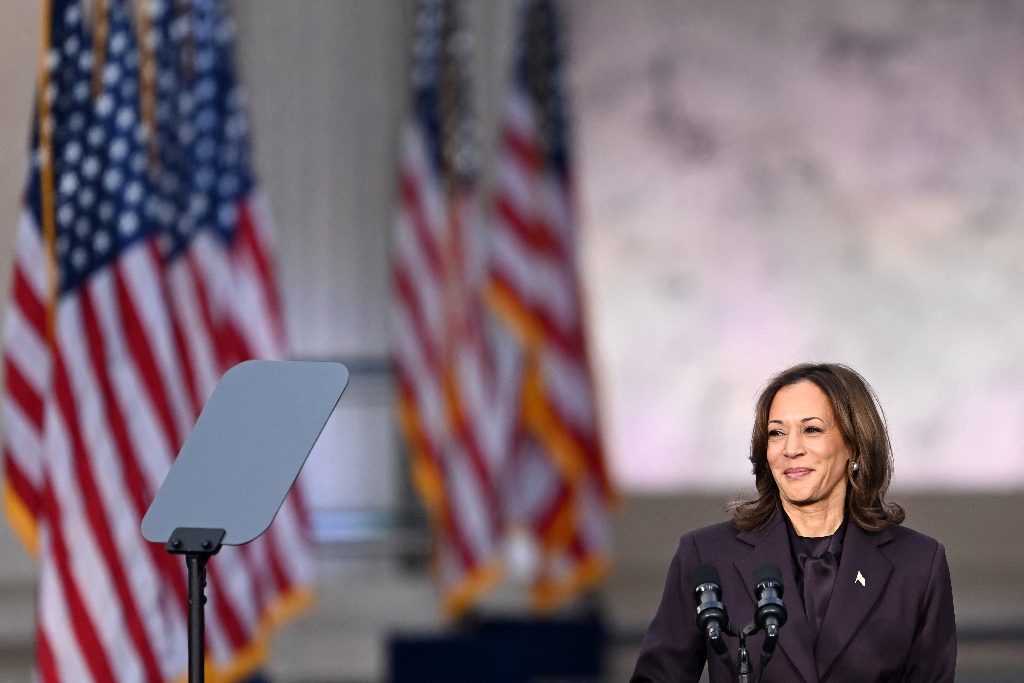
Kamala Harris was born to international student parents. Source: AFP
A lose-lose situation
Here’s the thing: these restrictions have the potential to worsen the economy. In an analysis conducted by Intead and Studyportals, 74% of over 1,000 international students surveyed preferred Biden’s economic policies to that of Trump’s.
The less likely US international students have access to career opportunities, the more likely they wind up discouraged at the idea of studying in the US. That means less talent for the workforce, which brings less competition for the overall market.
“I came to the US for my undergrad not knowing much about the immigration process post-grad and work-life balance here,” this Reddit user writes. “I went to a great school, got affected by the travel ban, had so much difficulty finding a job during the Trump era and have worked mediocre jobs just to be here legally.”
Where does Kamala Harris stand with foreign students?
Harris herself is the child of immigrant parents, though primarily raised by her mother after their divorce. Her father was from Jamaica, and her mother, India, and they met as graduate students in the 60s attending the University of California, Berkeley in the US.
So, with that influence — it makes sense that she sees international students in a positive light.
Harris wrote on her Facebook back in 2020, “International students are a vital part of our communities and schools. It’s outrageous they are being threatened with deportation in the midst of a public health crisis.”
This came in response to Trump threatening deportation of US international students who weren’t on campus full-time.
Nothing was set in stone with Harris’ policies towards international education, but she was expected to integrate US international students into the country better.
That means potentially expanding the H-1B visa programme, advocating for employment-based green cards, providing a more streamlined roadmap to citizenship for immigrants who’ve contributed to the country, and more.








